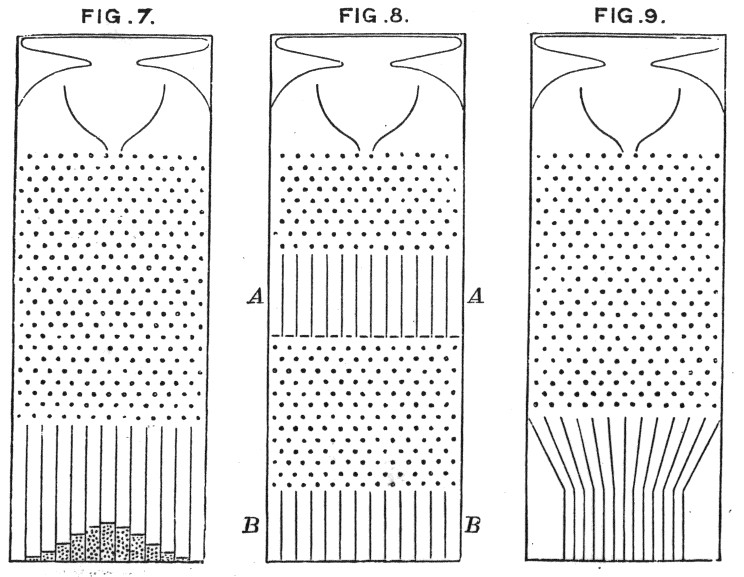- Joined
- Feb 9, 2011
- Messages
- 21,014
- Reaction score
- 7,774
- Gender
- Male
- Political Leaning
- Libertarian
A post came across my wife's FB page with regards to eugenics. And while most people were pretty much just bashing it (with no real reasoning other than "it's bad"), a couple of people brought up some point that I can't find myself disagreeing with. And I thought that maybe reviewing said point would make for good discussion.
One of the first thing to be look at is the point of separating out eugenics itself from how it is/was applied. The assertion was the eugenics itself is neither good nor bad. It's a tool. It depends upon who wields it and how, that would make its use good or bad. And I agree with that point. Eugenics is the seeking of the improvement of the human species through breeding. Now obviously the term improvement as applied to the human species will be highly subjective. But that does not detract from the fact that eugenics itself is a tool that is neither good nor bad.
Now I want to make this point clear. Just because I agree with the point that eugenics is simply a tool, or whatever, that is neither good nor bad, and can be wielded either ethically or unethically, that does not mean that I trust most humans to actually wield it ethically. Especially in this current era, I would expect that more people would abuse it than use it. But that is separate from the concept of whether or not eugenics is inherently unethical or good/bad.
A lot of what I saw in the way of argument was the use of conflation fallacy to assume that eugenics required forced breeding or prevention of breeding through various methods and/or laws. I honestly cannot see anything about eugenics that would require such. That is not to say that I can not see individuals or governments (see previous point) using eugenics as reasoning to enact such force, but, again, that is seperate from eugenics itself. Eugenics can easily be used ethically, with no force. Now that would most likely result in a very slow progress of desired goals, but it still can be ethically applied. Heinlein (author) provided a very good example in several of his novels and stories that centered around Lazarus Long and the Howards Families. Not a single person was ever forced or required to participate in a desired coupling, not prevented from an undesired coupling.
I'm going to let this thread get going, but I want to end with this one realization I had. If we are going to claim that we cannot allow eugenics to manifest into law, and prevent, based upon genetics, any individual's choice to breed with anyone else of their choice, then we cannot have incest laws that prevent breeding between those closely related by blood. Incest laws are actually applied eugenics.
One of the first thing to be look at is the point of separating out eugenics itself from how it is/was applied. The assertion was the eugenics itself is neither good nor bad. It's a tool. It depends upon who wields it and how, that would make its use good or bad. And I agree with that point. Eugenics is the seeking of the improvement of the human species through breeding. Now obviously the term improvement as applied to the human species will be highly subjective. But that does not detract from the fact that eugenics itself is a tool that is neither good nor bad.
Now I want to make this point clear. Just because I agree with the point that eugenics is simply a tool, or whatever, that is neither good nor bad, and can be wielded either ethically or unethically, that does not mean that I trust most humans to actually wield it ethically. Especially in this current era, I would expect that more people would abuse it than use it. But that is separate from the concept of whether or not eugenics is inherently unethical or good/bad.
A lot of what I saw in the way of argument was the use of conflation fallacy to assume that eugenics required forced breeding or prevention of breeding through various methods and/or laws. I honestly cannot see anything about eugenics that would require such. That is not to say that I can not see individuals or governments (see previous point) using eugenics as reasoning to enact such force, but, again, that is seperate from eugenics itself. Eugenics can easily be used ethically, with no force. Now that would most likely result in a very slow progress of desired goals, but it still can be ethically applied. Heinlein (author) provided a very good example in several of his novels and stories that centered around Lazarus Long and the Howards Families. Not a single person was ever forced or required to participate in a desired coupling, not prevented from an undesired coupling.
I'm going to let this thread get going, but I want to end with this one realization I had. If we are going to claim that we cannot allow eugenics to manifest into law, and prevent, based upon genetics, any individual's choice to breed with anyone else of their choice, then we cannot have incest laws that prevent breeding between those closely related by blood. Incest laws are actually applied eugenics.



